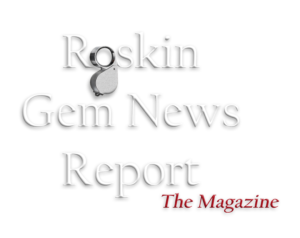An Update on DANAT: Preserving the Culture of Natural Pearls
Brianna Kamienski
Contributor
Danat PR
Society’s love for exquisite, rare, and luminous pearls and gemstones has persisted since the beginning of civilization. Whether referencing diamonds, pearls, sapphires, or emeralds, humans have remained enchanted by high-quality gems that are unearthed from exotic locations globally. However, the culture of jewelry making and gemology is under threat. As artificially produced products like lab-grown diamonds and cultured pearls become more common and deceiving, consumers increasingly require more support in their shopping journey. Gemology education and research are the key to sustaining this artistic practice. Only a few organizations are dedicated to preserving consumer confidence and accurately reporting the value of these gems. One stands out because of its unparalleled access to natural pearls and its highly qualified team.
The Bahrain Institute for Pearls & Gemstones (DANAT) is a uniquely positioned provider that has existed within the government but has now been privatized in 2017 to better serve the country’s longstanding pearl sector. DANAT is committed to reestablishing Bahrain as a commercial hub for pearl diving and trade through robust regulations and key relationships with academic and cultural organizations. As DANAT continues to reflect Bahrain’s ancient pearling history, the world is poised to benefit from some of the finest natural pearls and the organization’s cutting-edge identification and research capabilities.
Colored Gemstones
Gemstones like diamonds and pearls have become ubiquitous symbols of opulence worldwide. In this environment, pearls have remained a highly sought-after product with an equally elevated price point. Historical evidence has highlighted that the Middle East, particularly the Gulf countries, produces some of the highest quantity of natural pearls. In light of these realizations, countries like Bahrain have built a strong pearl market that has spanned thousands of years. This island-like country has been referenced in historical texts, and ancient paintings, and is well-revered by global explorers for its rich abundance of lush pearl beds. Egyptian murals, Roman philosophers, and paintings have all touched on the beauty and rarity of natural pearls. Emerging designers have also highlighted that Bahrain is the go-to location for this product.
Natural Arabian Pearls
After Indian monarchs modernized pearl jewelry as ropes and strands, Jack Cartier, the founder of a famous luxury brand, ventured to Bahrain to explore the mysteries of Arabian pearls. The country was a leading exporter of these products because of its accessible ports and strategic location.
As the world has modernized, cultured pearls, lab-grown diamonds, and other artificially produced gemstones have entered the market. Their presence has thwarted diligent gemstone retailers that offer the most intriguing products. These illicit counterparts erode consumer confidence because they can often be misconstrued as having the same quality and value as true gemstones. This is where DANAT’s mission becomes relevant.
“It is critical for organizations like The Bahrain Institute for Pearls & Gemstones to provide accurate gemological reports, cutting-edge research, and high-quality education programs,” says CEO, Noora Jamsheer. “Without these services, the industry will shrink. Consumers will lose confidence in products and over time, the culture of pearls and gemstones will be forgotten.”
Lab Grown Diamonds and Cultured Pearls
As the industry has become more tech-enabled, lab-grown diamonds and cultured pearls have become very advanced. These artificial products are difficult to identify without skilled gemologists who are trained to identify the stone, its origin, and its grade. “Since artificial gemstones are becoming more common, it’s very important for consumers to have an organization they can trust to identify their stones. Cultured pearls and lab-grown diamonds can be produced in mass quantities unlike their natural counterparts, which is why there is a significant impact on value when the item is man-made.”
DANAT has become a leading institution for businesses and consumers looking to understand the value of their gemstones. The organization’s innovative facilities are supported by Bahrain’s long history of pearl diving and its recent move to regulate and promote the industry. Out of the Gulf countries, Bahrain was the only one to maintain a strict ban on cultured pearl production. This commitment alongside the move in 2017 to set regulations, advocate for gemological research, and promote the intricate culture of pearl diving, further demonstrates DANAT’s advantage over other gemological labs. In fact, the institution has the largest pearl and gem laboratory in the MENA region. DANAT’s collection is invaluable for gemological research, education programs, and reporting. Annually, DANAT certifies around five million pearls and anticipates that the number will increase as these products increase in popularity.
Looking toward the future, the pearl and gemstone market is poised to grow as more consumers desire high-luxury goods. In this environment, gemological labs will only become more vital for protecting authentic gemstones and pearls. DANAT is equipped to grow with these changes. The institution is taking steps to integrate artificial intelligence, expand its library of research, and offer more education programs for students, enthusiasts, and organizations. DANAT is poised to become a true leader in the industry, ensuring that the once bustling natural pearl industry will once again reign as a leader of the jewelry market.













